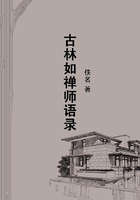A well-known Russian economist, Professor Ivanukoff,(3*) has tried to show to what extent the press shared with the Government the difficult task of elaborating the scheme, according to which the serfs were to obtain "freedom and land." He is quite correct when he says that, with the exception of a single paper called the Journal of Landed Proprietors, the whole Russian Press unanimously declared itself in favour, not only of the abolition of personal servitude, but also of the endowment of the peasants with land. Such writers as Katkof, the well-known editor of the Moscow Gazette, a man who has lately played so prominent a part in the reactionary movement, were then the open friends of Liberalism, and rivalled the most advanced reformers in their defence of civil freedom. The opinions of Katkof were so greatly at variance with those of the Government at the beginning of the movement, that he was obliged to bring to a close a series of articles on the social condition of the serfs which he had begun in his periodical, the Russian Courier. Another eminent publicist, Koschelev, who was the author of one of the numerous private schemes of emancipation (their number amounted to sixty-one), was obliged at the same time to abandon the further publication of a journal called the Welfare of the Country, on account of the strong language in which he advocated the endowment of the liberated serf with those portions of the land already in his possession. A Russian magazine of great renown, the Contemporary, was at the same time on the point of being suppressed on account of an article written by Professor Kavelin, expressing his views as to the opportuneness of redeeming the lands actually possessed by the peasants, and that, too, with the direct help of the State. The Minister of Public instruction, Evgraf Kovalevsky, was even asked to issue a circular, by which the censorship was entrusted with the power of suppressing any article, pamphlet, or book, dealing with the question of enfranchisement, that had not previously been approved by the central committee. This untimely warfare against public opinion and the liberty of the press, fortunately enough, did not last long. The circular was printed in April, 1858, and seven months later the Government relaxed the restrictions imposed; and that because of the complete change in its own views as to the outlines of the reform. The opinions recently suppressed became those of the Government, and the prosecuted writers were considered, for a while at least, its surest allies. I insist on these facts, because I know of no instance which better characterises the ordinary proceedings of the Russian bureaucracy. It begins, as a rule, by suppressing all that lies in its way, and then, finding no other issue, it adopts the line of conduct which it has recently condemned. A foreigner who has no notion of this mode of procedure must find great difficulty in understanding how it happens that in a country where no freedom of the press is recognised, in which generals and high officials seem alone to have the right of professing opinions on public matters, the press, nevertheless, has more than once exercised a decisive influence on the course of politics. The all-powerful bureaucracy is very often but an empty-headed fool, anxious to accept the ideas of the despised and prosecuted journalist. In Russia, as well as everywhere else, the true and lasting power is that of public opinion, and of those who know how to influence it. Periods in which the Government acts contrary to public opinion occur from time to time. They are very harmful to those who dare to remain faithful to their opinions. For a while nothing is heard of but the need of suppression both of opinions and of those who publicly profess them. But time passes and the Government begins to reap the fruits of its own sowing. At every step it takes, it finds on the part of those it governs nothing but ill-will, a hidden but profound mistrust. As soon as it feels that it is losing all hold on the minds and hearts of the people, it is the first to condemn what it has recently praised. Some fine morning everybody is stalled by learning that the very men who had done their best to render impossible the public expression of certain ideas are now drawing their inspiration from these same ideas.
But I feel that I have made perhaps a necessary, but at all events a too long, digression from the direct line of my inquiries. I will therefore return to them at once, and begin by pointing out those points on which the committee appointed to elaborate the law of enfranchisement carried out in their scheme -- the opinions of the press.
It was the press which first advocated the notion that the liberated peasant ought to become the owner of the land actually in his possession. Schemes for realising this idea had been already worked out in the reign of Nicholas by some patriotic scholars and publicists. Among them was Professor Kavelin, whose project was published by the Russian contemporary, at the head of other articles, on the impending reform. It was on Kavelin that first fell the responsibility of expressing ideas in opposition to the views of the Government. His opinion as to the necessity of endowing the peasant with land soon found an echo in the debates of the nobility of Tver, who petitioned the Czar to extend his promise concerning grants of land to the enfranchised serf, not only to his homestead and the ground surrounding it, but also to the shares the peasant possessed in the open fields of the village. In giving an account of the different opinions expressed by the provincial nobility, the central committee referred to this scheme proposed by the nobility of Tver, and recommended it to the Government. Thus we see how prominent a part the press played on this occasion.














